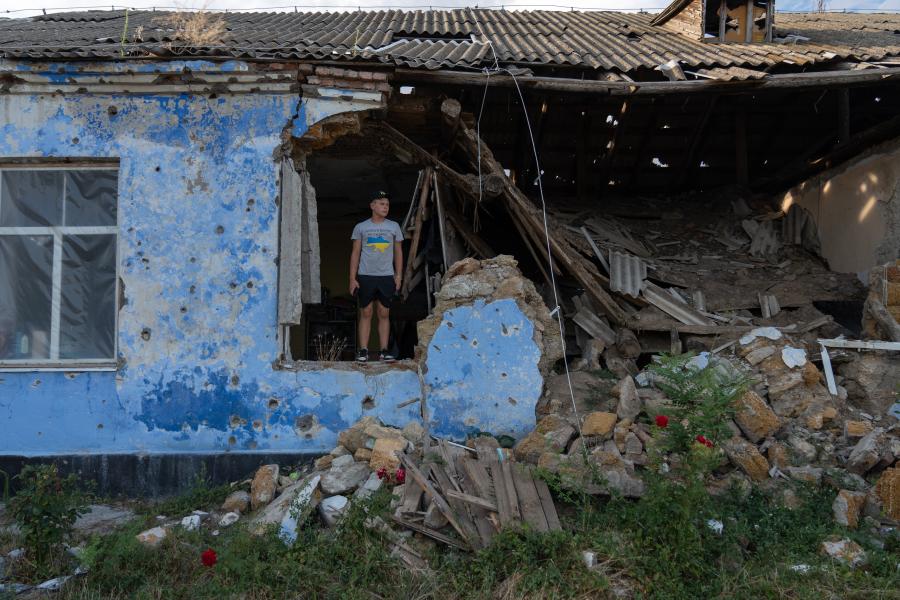“The most recent wave of Russian attacks in the Kharkiv Region underscores the dreadful cost of the war, and the horrors that the children of Ukraine are facing. Many have been killed or injured, and thousands forced to flee from their homes with nothing but the clothes on their backs and the profound stress from having witnessed a truly terrifying situation,” said Denise Brown, the UN Resident Coordinator and Humanitarian Coordinator for Ukraine. Since the escalation of the war in February 2022, the UN Human Rights Office has verified that over 600 children have been killed and more than 1,420 injured across Ukraine. However, the actual toll is likely much higher.
Children spend endless hours in bomb shelters due to indiscriminate attacks. In the two years since the escalation of the war, children in front-line communities spent between 3,000 and 5,000 hours – equivalent to four to seven months – in bomb shelters, creating stress and making life extremely difficult for them. Forced displacement compounds the risks they are exposed to, including separation from family, and increased risks of trafficking, exploitation, and abuse, which can, in addition, lead to severe stress and psychological trauma.
The war has severely impacted the education system in Ukraine. The persistent pattern of destruction that has marked more than two years of war forces many schools to adopt online or underground classes. The situation is particularly concerning in the front-line regions. In the current academic year, nearly 1 million children – a quarter of all Ukrainian children enrolled in school – have been unable to attend in-person learning, particularly affecting those with disabilities or special educational needs. Frequent air raid alarms and power outages have further disrupted their education, leading to significant learning losses and long-term implications for their development.
Access to health-care services has also been limited due to damage to health facilities and displacement of health workers, severely impacting children's health. Displaced families and those living close to the front line struggle to obtain necessary medical care, particularly for pregnant women and newborns. Additionally, disrupted vaccination efforts have increased the risk of outbreaks of vaccine-preventable diseases.
The UN is supporting children in Ukraine
The United Nations in Ukraine, along with its partners, are working to assist children in Ukraine. In 2023, for example, the UN provided vital primary health care to over 5.1 million children and mothers and education services to over 2.5 million children and teachers. “The UN remains committed to supporting the people of Ukraine whose lives have been torn apart by the war. But no amount of aid will bring back what a generation of children is losing because of Russia’s invasion,” concluded Denise Brown.
Note to Editors:






